‘Knock at the Cabin’ Review – A Well-Acted Blah-pocalypse
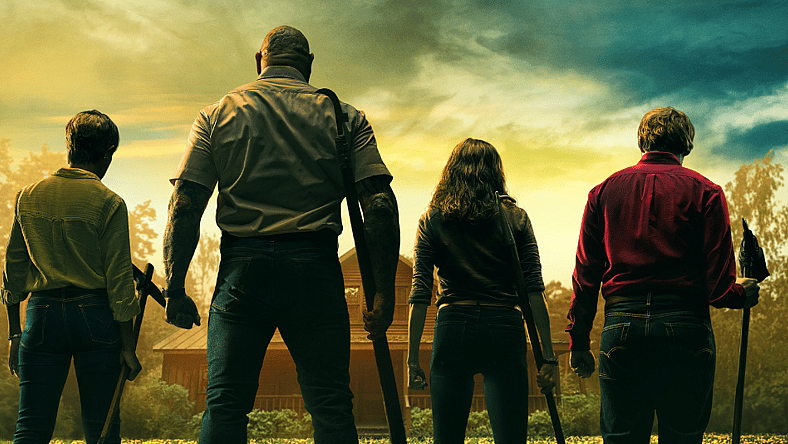
Eric (Jonathan Groff, The Matrix Resurrections) and Andrew (Ben Aldridge, Fleabag) are vacationing at a remote cabin in the woods with their adopted daughter Wen (Kristen Cui) when four strangers invade their home, but not without warning.
Leonard (Dave Bautista), Adriane (Abby Quinn, Shithouse) Sabrina (Nikki Amuka-Bird, Old), and Redmond (Rupert Grint) beg Eric and Andrew to make an unthinkable sacrifice in order to prevent Armageddon and the death of every person on earth.
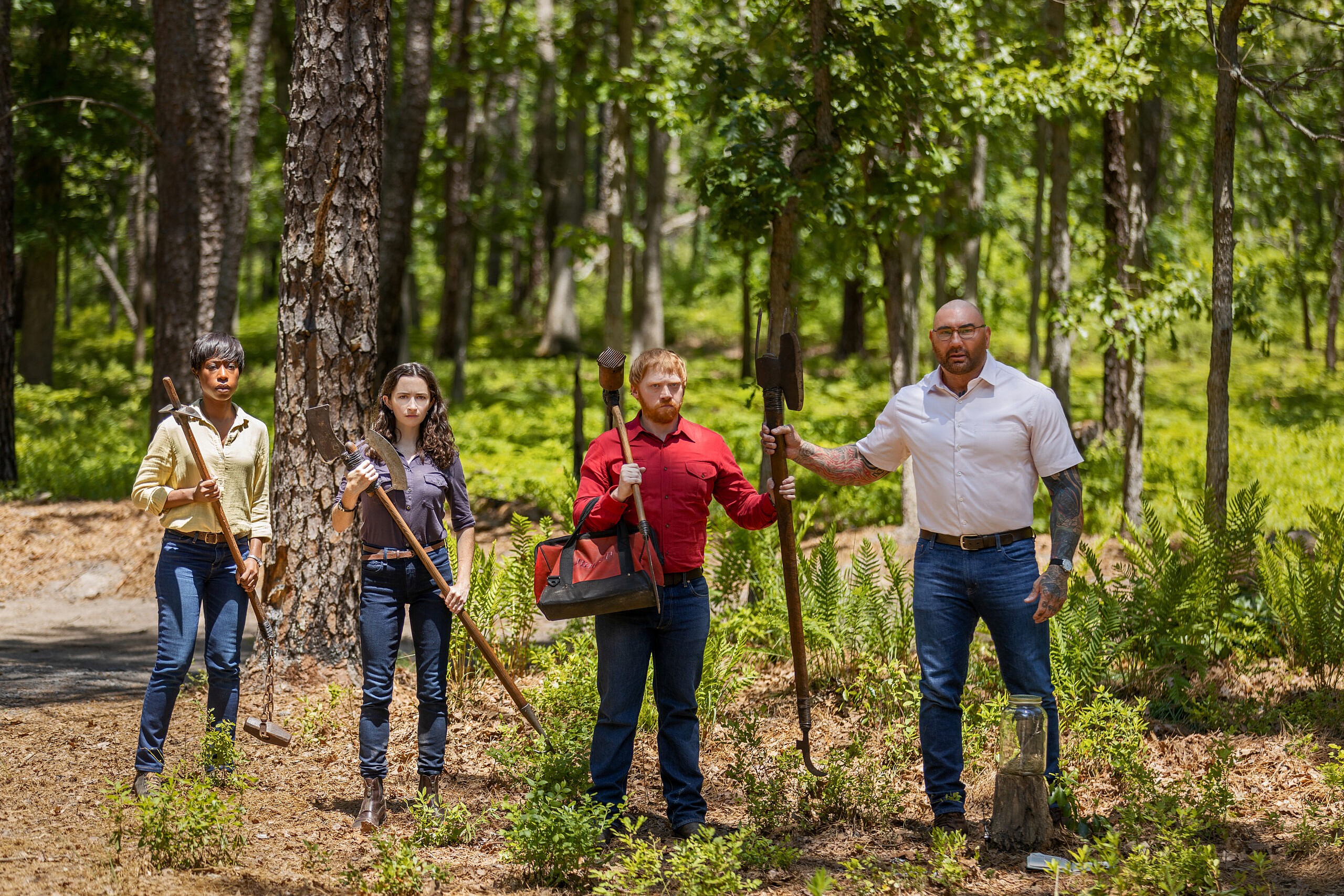
Knock at the Cabin is based on the 2018 horror novel The Cabin at the End of the World by Paul Tremblay with a screenplay by M. Night Shyamalan, Steve Desmond, and Michael Sherman. It is one of the only Shyamalan films to not have a major twist at the end.
It’s an unusual choice since Knock at the Cabin is Shyamalan’s first R-rated film since The Happening. Aside from the casual use of the F-word, Knock at the Cabin is incredibly tame since all of the kills are off-screen and the blood shown is typically no more than a few drops on the floor, a trickle down the arm, or a white sheet turning red.
The direction Knock at the Cabin chooses to go is a bit obvious even if you haven’t read the book it’s based on. The conflict comes in whether or not Leonard and the rest of the group are telling the truth or if they’re trying to pull some sort of con on Eric and Andrew. The fact that they’re homosexuals ties into the story since the two of them, particularly Andrew, believe that this is a group that has come to either recruit them into some sort of cult or abduct them and attempt to make them straight.
Every time Eric and Andrew are asked to make a sacrifice and refuse, one of the intruders is killed by the surviving members. Each of them have had similar visions to make them all believe that the apocalypse is really going to happen. They turn on the news after each kill to show that the plagues have begun and that humanity is one step closer to being completely wiped out.
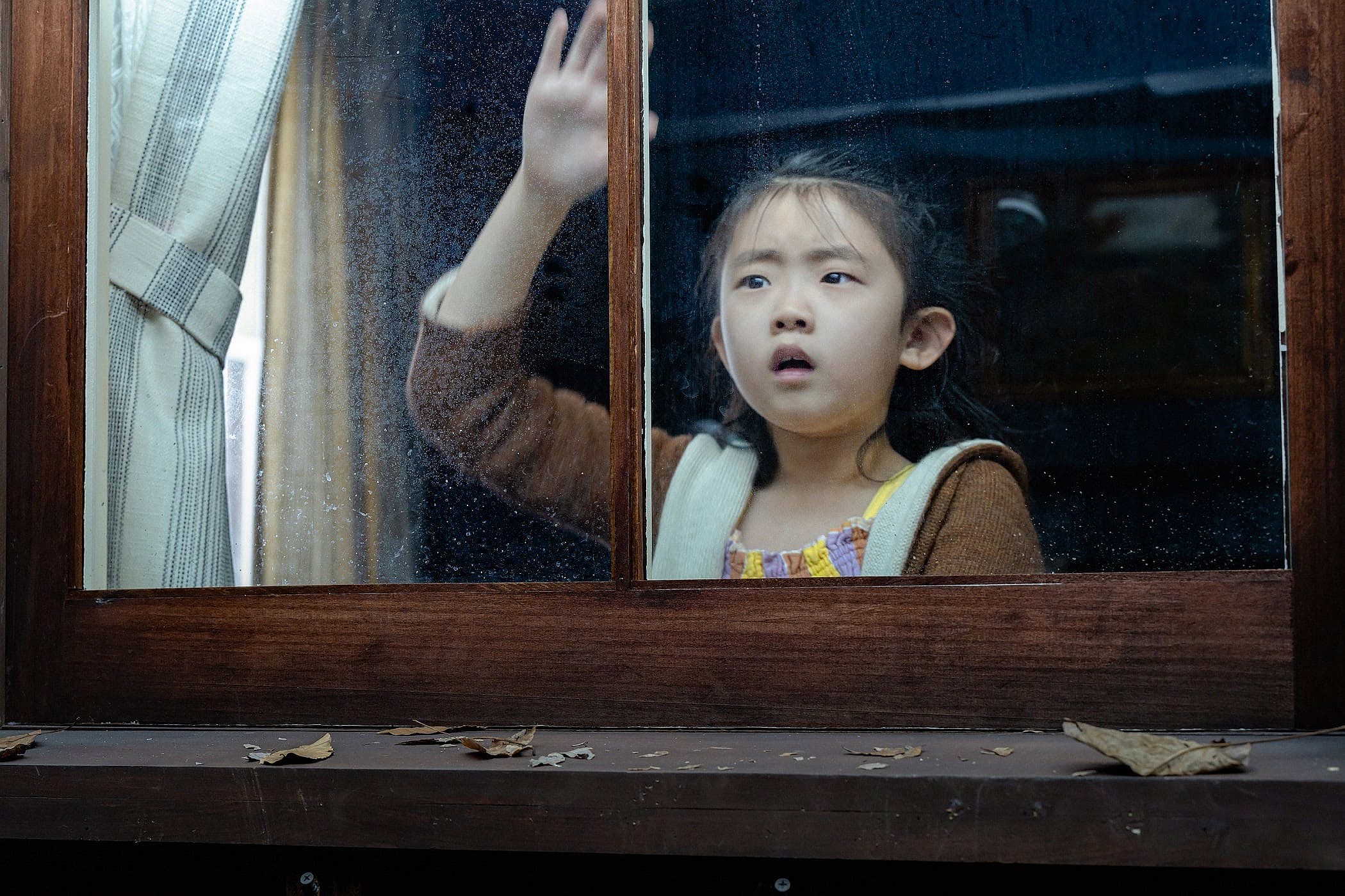
What drives the film is the performances. Bautista showcases yet another layer of how talented of an actor he really is. He’s dangerous as a big man and his motive is questionable, but his actions show how much of a gentle giant he is.
He genuinely wants Eric and Andrew to cooperate despite how crazy things sound and the insane thing they have to do in order to save people who have judged them their whole lives. Leonard chooses to be emotional and heartbroken and yet knows how to use his size when it’s absolutely necessary.
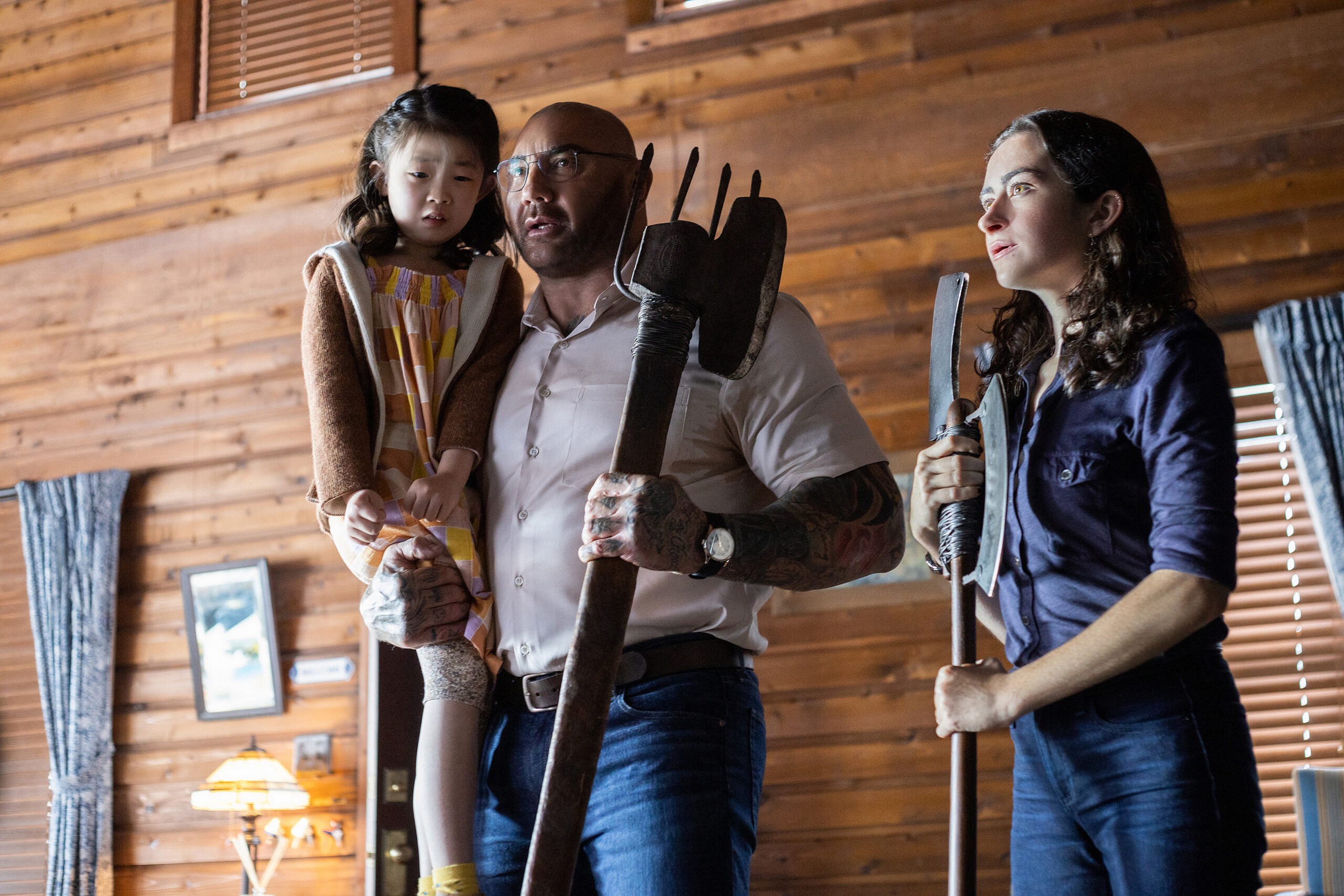
Leonard’s other associates are equally mesmerizing on-screen presences. Rupert Grint has a short amount of screen time and yet his irritated demeanor and impatience are quite memorable.
Abby Quinn and Nikki Amuka-Bird are just as torn as their associates, but their nurturing and healing nature makes them key pieces of the puzzle. Quinn is making her own sacrifice as Adriane and it shows in her desperation and plea for a quick resolution.
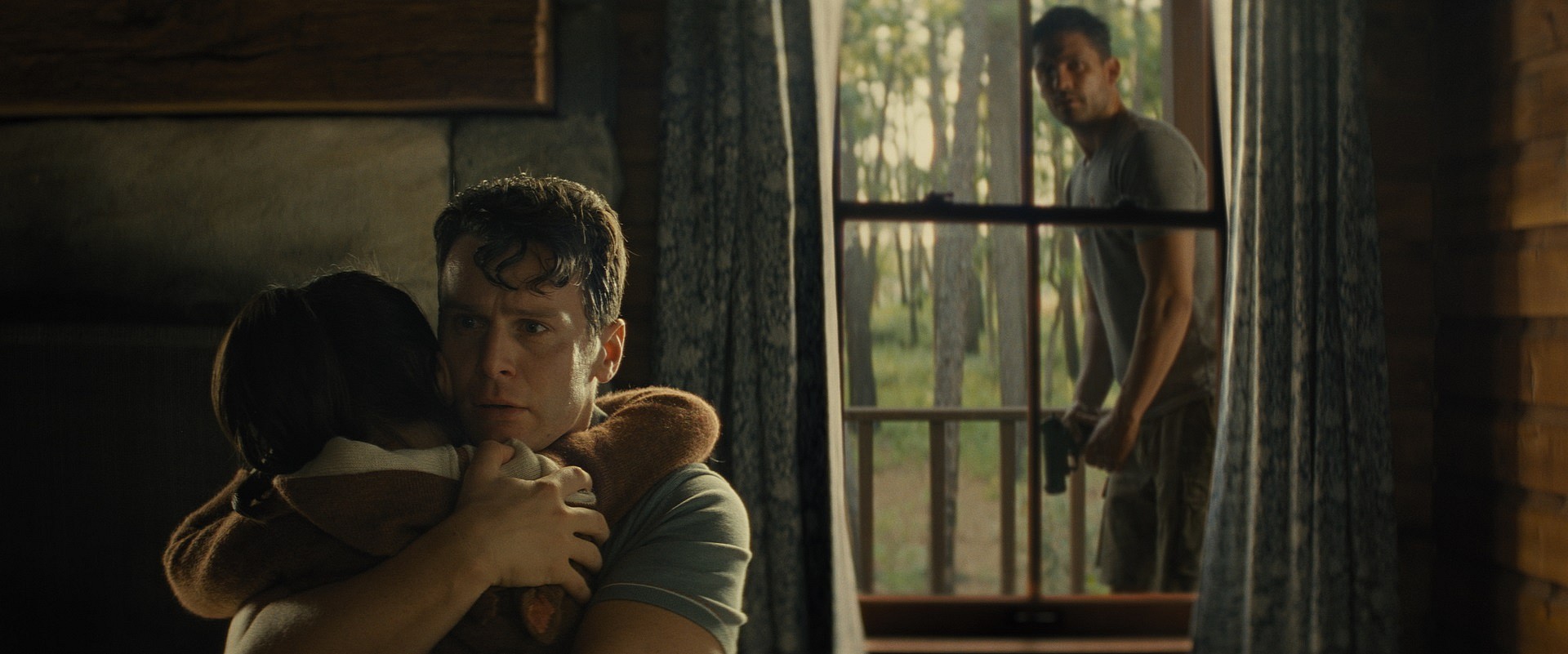
The family is where it starts to fall apart. Kristen Cui is exceptional as Wen as she balances fear and hopelessness with usefulness and overall smarts in a dangerously stressful situation. Eric is injured early on and has a concussion for nearly the entire film, so what he sees and says are met with hesitation. Jonathan Groff is the quieter one of the gay couple, but he’s also the one that thinks more before he speaks and seems more composed despite the head injury.
Ben Aldridge is unbearable as Andrew. Andrew has a short fuse, is a lawyer, and always has something to say at a rapid pace and an obnoxiously loud tone. His family is going through this devastating ordeal and you wish like hell someone would slap him every now and then to calm him down.
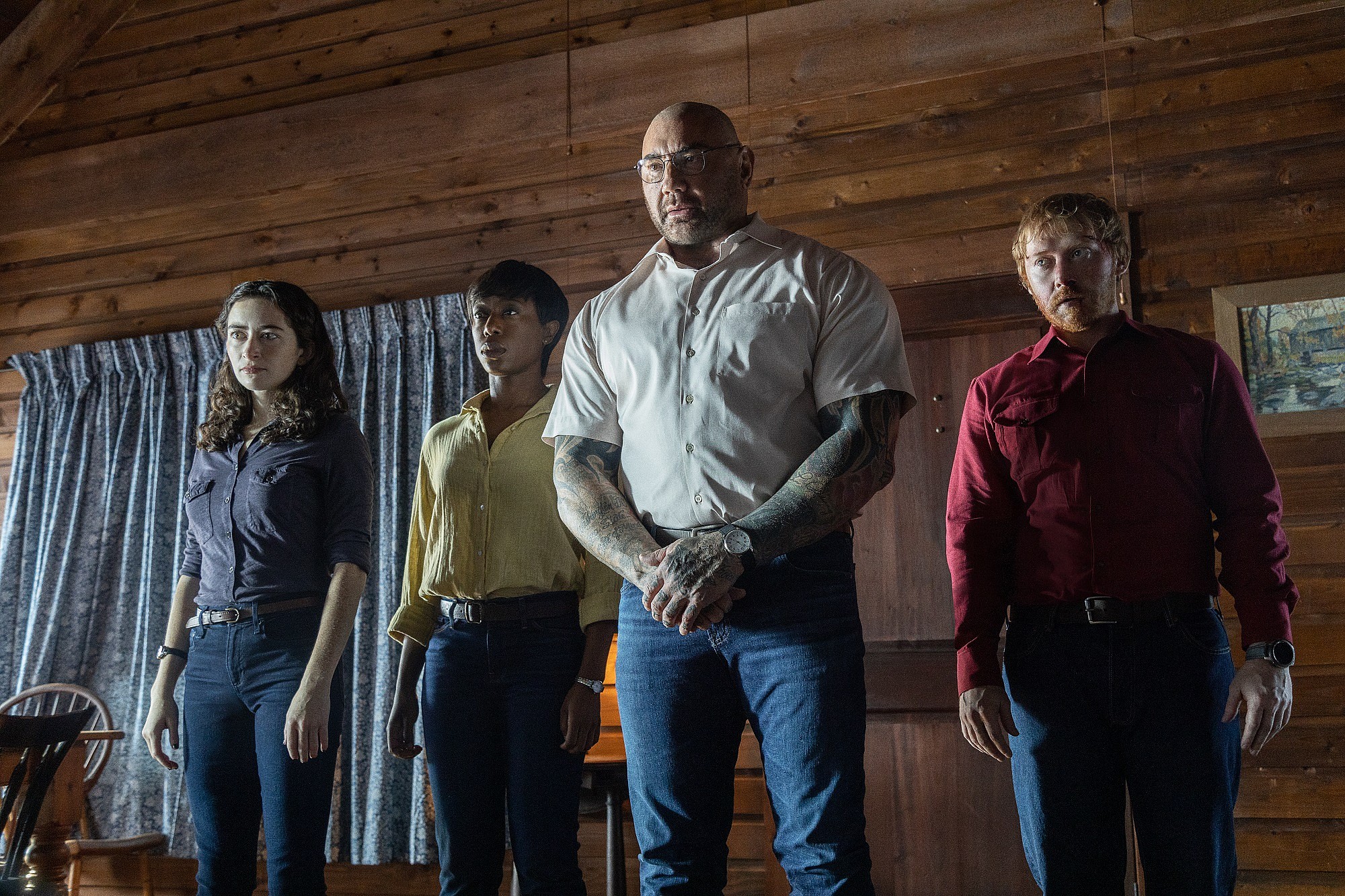
The no sacrifice, kill intruder, repeat formula is interspersed with flashes of Eric and Andrew’s recent life events leading up to their arrival at the cabin. It helps you feel a bit more about the family and understand why they take the stance that they do during the majority of the film.
Shyamalan choosing not to do a twist with Knock at the Cabin seems to devour any sort of unpredictability in the story. The ending of the film has the opportunity to go in a rather intriguing direction, but chooses to fizzle out with a cliché whimper.
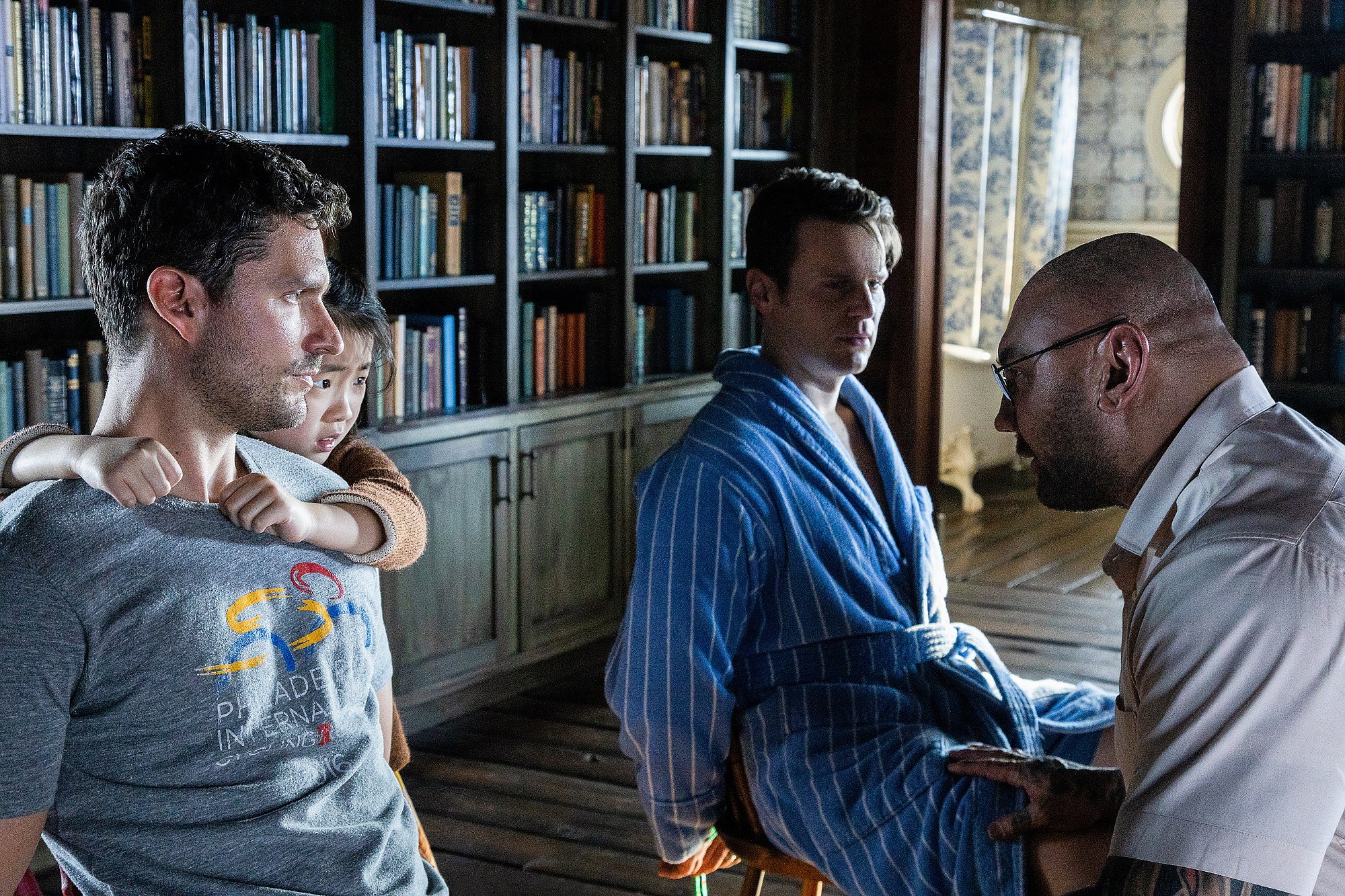
The Verdict
The tender, sympathetic, and desperate performances are what make Knock at the Cabin worthwhile. The psychological and horror aspects of the film are timid at best with the true identities of Leonard and his associates being obvious, gruesome elements that you never see, and an apocalypse that is a lackluster disaster overall.
It’s not that Knock at the Cabin is entirely bad, it’s that it seems to actively know it could be more creative, thrilling, and shocking and yet purposely chooses to bury its head in the sand and let mediocrity have its remorselessly bland way with it.
